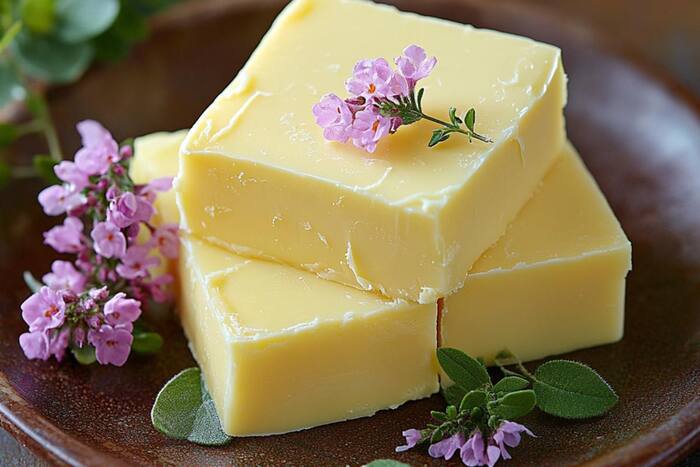
By clicking “Accept All Cookies”, you agree to the storing of cookies on your device to enhance site navigation, analyze site usage, and assist in our marketing efforts Cookies Policy.

Butter contains vital nutrients like Vitamin A, D, E, and K2, which support immunity, bone health, and heart function. Its healthy fats aid in digestion, hormone production, and brain health. The presence of CLA and butyrate improves metabolism and gut health. Antioxidants in butter protect against oxidative stress, promoting overall well-being. It provides sustained energy without blood sugar crashes, making it a great dietary fat. Choosing grass-fed butter ensures maximum benefits while avoiding processed alternatives.
Butter is a powerhouse of essential vitamins, especially fat-soluble vitamins that play crucial roles in overall health.
Butter contains healthy saturated fats, which are essential for brain health. These fats:
Unlike unhealthy trans fats found in processed foods, natural saturated fats in butter can be beneficial when consumed in moderation.
Butter, especially from grass-fed cows, is high in Conjugated Linoleic Acid (CLA), a type of fatty acid known for:
CLA is also found in other dairy products, but butter is one of the best natural sources.
Butter contains butyrate, a short-chain fatty acid that supports digestive health. Butyrate:
Regular consumption of butter in moderation can improve digestion and overall gut health.
Fats are essential for hormone production, and butter provides a natural source of cholesterol, which is a building block for hormones such as:
Healthy hormone levels are crucial for metabolism, mood regulation, reproductive health, and energy levels.
The Vitamin D and K2 in butter help in the proper absorption of calcium, which is essential for:
For stronger bones, pairing butter with calcium-rich foods like dairy and leafy greens is highly beneficial.
Butter contains beta-carotene and other antioxidants that help:
These antioxidants contribute to overall well-being and protection against diseases.
Butter is a great source of quick energy due to its fat content. Unlike sugar and processed carbs that cause energy crashes, butter provides:
Adding a small amount of butter to meals can keep you feeling full and energized for longer.
While butter has been criticized for its saturated fat content, recent studies suggest that:
Choosing high-quality butter from grass-fed sources ensures better heart health benefits.
Butter not only enhances the taste of food but also helps in:
Using butter in moderation in cooking can improve both the flavor and nutritional value of meals.
For breaking news and live news updates, like us on Facebook or follow us on Twitter and Instagram. Read more on Latest Dishes News on India.com.